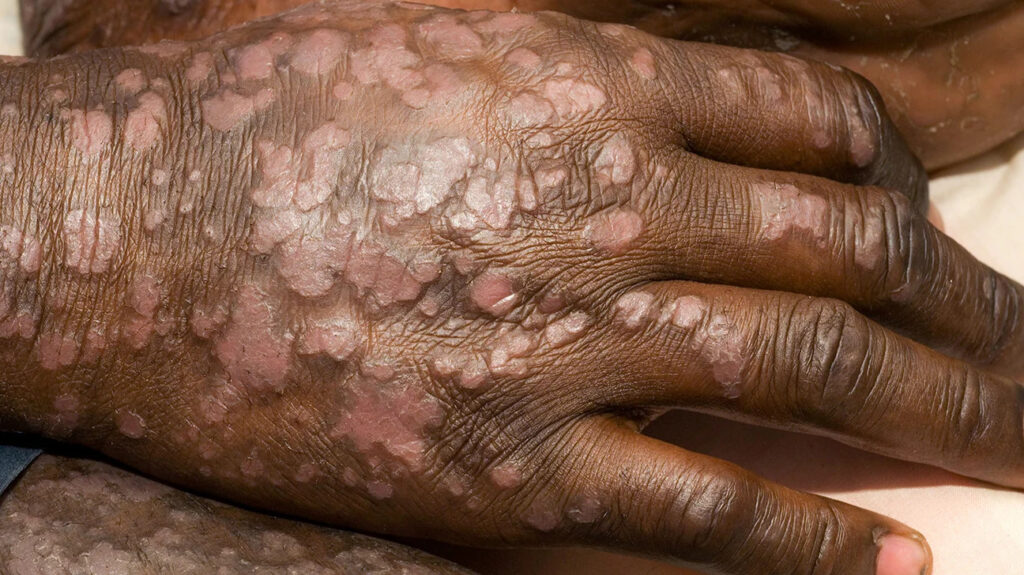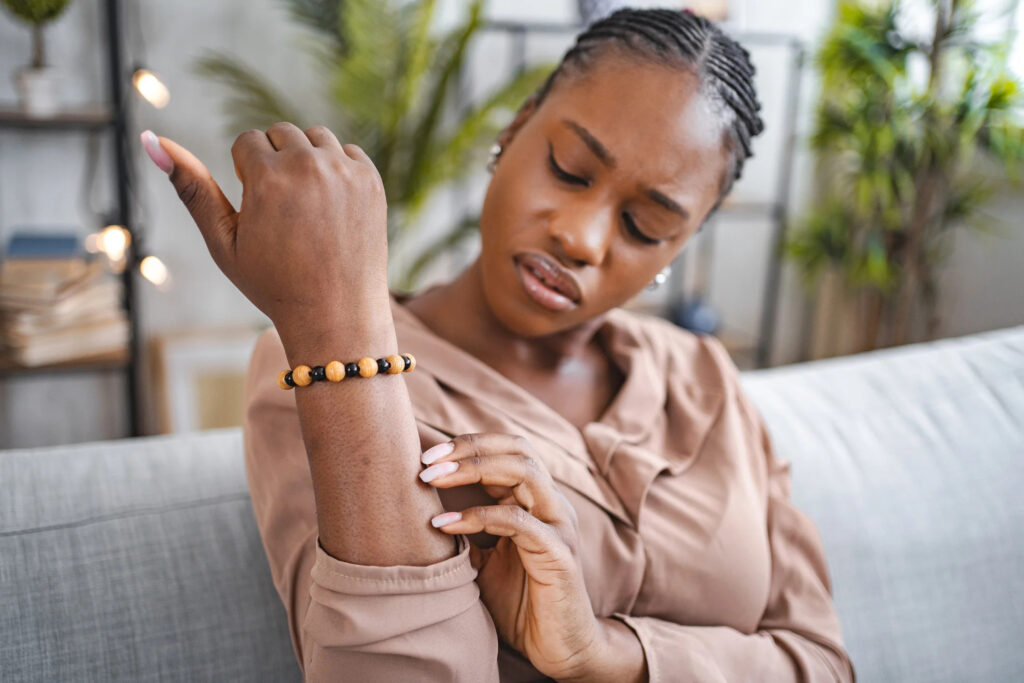According to Women’s Health, psoriasis is a widespread skin condition.
It affects a staggering 125 million people globally.
However, despite its prevalence, comprehensive information remains elusive.
Numerous misconceptions persist, especially concerning its impact on Black women.
So, let’s shed light on the nuances of the disease in darker skin tones.
The Condition Doesn’t Only Affect White Folks

While the disease is often depicted as primarily affecting individuals with lighter skin, statistics tell a different story.
In the U.S., 1.9 percent of African Americans and 1.6 percent of Hispanics experience psoriasis.
These statistics are compared to 3.6 percent of Caucasians, according to a study in the Journal of Clinical and Aesthetic Dermatology.
The condition can affect anyone/ Its appearance on darker skin remains poorly understood.
The disease typically manifests as scaly, itchy patches.
Stress, illness, or skin injury can trigger flare-ups.
On lighter skin, the disease often presents as thick, red plaques with silvery scales.
It is commonly found on the arms, shoulders, chest, and legs.
In contrast, psoriasis can exhibit subtler redness in Black women, appearing as purplish-gray or dark brown.
The scaliness may appear white or gray.
The aftermath of psoriasis flare-ups differs in darker skin, but it leaves patches of discoloration that persist for months.
Challenges in Diagnosing Psoriasis

Misdiagnosis of Psoriasis on black skin is a prevalent issue.
The distinct characteristics and the lack of education about psoriasis on Black skin is a major contributor.
Studies show that African-American patients have more extensive disease involvement.
Their Caucasian counterparts often experience lesser disease involvement.
Look out for well-demarcated areas of flaking, dry skin with redness or purple-gray discoloration.
This will help realize early diagnosis.
These lesions may appear on the scalp, elbows, knees, torso, buttocks, nails, or other areas.
They can be itchy, painful, and even pus-filled.
Fortunately, there are various treatment options for psoriasis.
Treatment Options

Regardless of skin tone, topical steroids and phototherapy can be leveraged.
Moreover, oral medications and biologics (injectable drugs) are available.
Biologics are often preferred for their superior disease control.
They are also convenient, with simple self-injections every few weeks.
The disease has no cure.
Managing it between treatments can be challenging.
However, dermatologist-approved lotions and topical remedies can provide relief.
Understanding The Condition Is Crucial
In conclusion, while psoriasis may be more prevalent among those with lighter skin, Black individuals can also be affected.
They could also experience more severe cases.
Additionally, understanding the disease ensures appropriate treatment and management of the chronic skin condition.
If you suspect you have psoriasis, consult a dermatologist for accurate diagnosis and treatment.








